3 Important Differences Between Well Water & Municipal Water
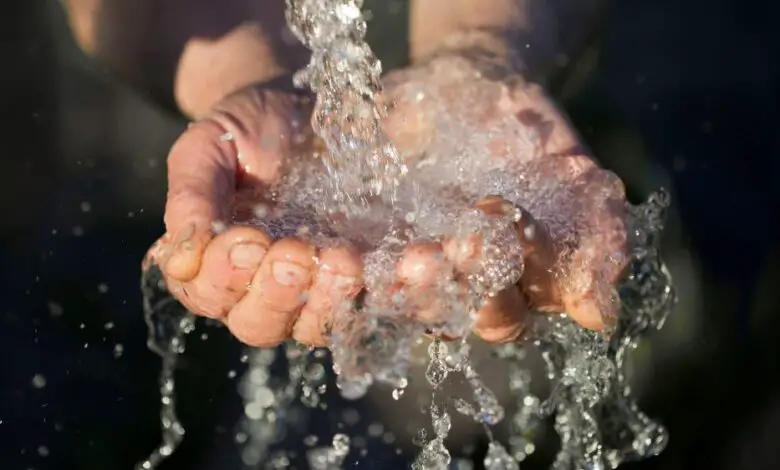
Are you struggling to create a water treatment system that’s right for your home? Whether you’re on municipal water or well water, there are important differences to be aware of when putting your water filtration system together. Regardless of which type of water feeds your home, you’ll pick up some interesting details and concepts in this article.
So, with those thoughts, let’s see what makes these two types of water different and how you should approach treating them for optimal use throughout your home.
1.) Chlorine and Chloramines
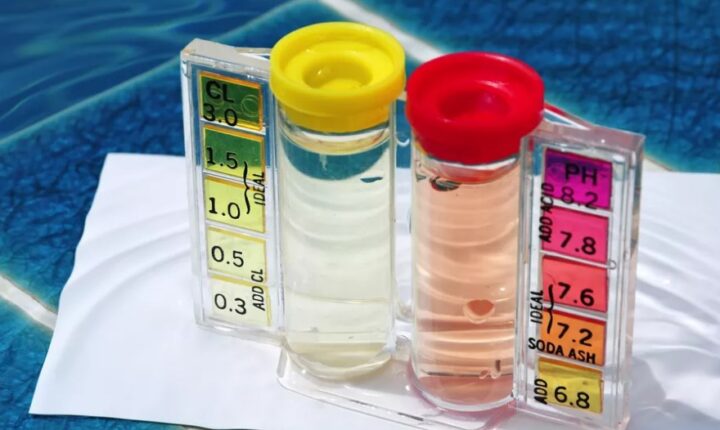
If you have municipal tap water, then your water gets treated with chlorine or chloramines to eliminate any potentially harmful bacteria. For this reason, most people opt for water filters that remove chlorine when they have municipal water.
Additionally, it’s important to be aware of chloramines. Chloramines are trickier to remove from water than chlorine, hence they require different types of filtration media to be removed. Thus, if you’re on municipal water, it’s a good idea to reach out to your water supplier to ask them whether they use chloramine or chlorine.
Now, on the other hand, people on well water don’t have to worry about filtering out chlorine or chloramines. However, they do still need to consider the possibility of harmful bacteria and other microorganisms entering their wells.
To combat this issue, the solution is to install a UV water filter as part of your home water treatment system. The UV purifier works by using ultraviolet light to eliminate harmful microorganisms at impressively high rates.
When choosing a UV water filter, be sure to choose one that can effectively handle the volume of water entering your home at any given moment. Also, you might want to consider installing an under-sink reverse osmosis system with a UV purification stage as a way to purify your drinking water.
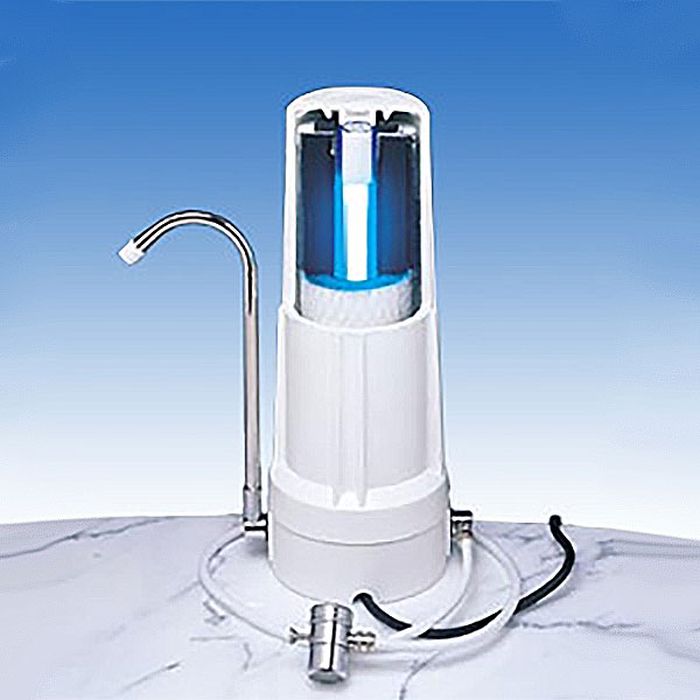
The bottom line here is that municipal water gets treated with chlorine and/or chloramines while well water does not. It’s up to the homeowner to disinfect well water with a UV water purifier for optimal results.
2.) Hard Water
People on well water are more likely to run into hard water issues since groundwater picks up minerals by dissolving bedrock. As a result, well water is often higher in calcium and magnesium than municipal water. Plus, you might find that your well water has high levels of iron.
Due to the higher likelihood of hard water for people on well water, it’s necessary to install a water softener. Traditional water softener systems use salt and must be maintained, though, good systems feature programmable control heads that ensure your system runs smoothly. Click here to view the top water softeners for well water.
Secondly, there’s the option to opt for a modern salt-free water softener that requires less maintenance. However, while this might sound like a good idea, it’s important to know that the results are still mixed with salt-free softeners, and they can’t be as relied upon as a salt system.
To choose between the two types of systems, start by testing your water hardness to get a clear idea of how hard your water actually is. Once you have the results, then it’s easier to decide if a salt-free system is right for you.
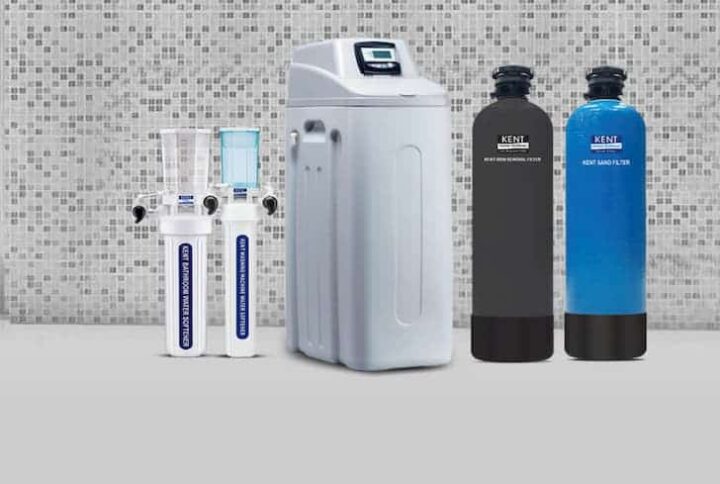
Essentially, people with very hard water will want to stick with a salt system, while people with only mildly hard well water can get away with using a salt-free water softener. Also, if you find that your water is high in iron, there are combination water softeners available that implement a water filter designed specifically to remove iron.
Finally, people on municipal water are less likely to need a water softener, yet this depends on where you live. To get an idea of the hardness of your municipal water, call your water supplier to ask them for the water hardness level. Also, if you regularly notice streaking on your dishes or soap not lathering well when you bathe, there’s a good chance that you have hard water.
3.) Fluoride
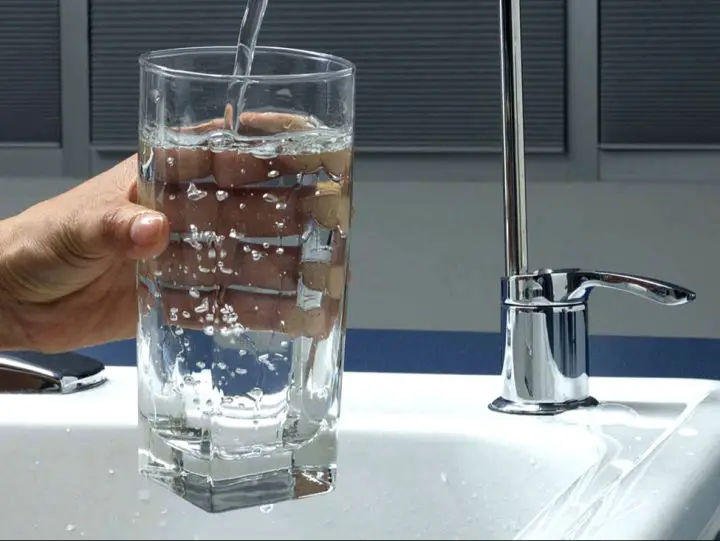
One thing that people on well water don’t have to worry about is water fluoridation aka the addition of fluoride to the public water supply to prevent tooth decay. For a lot of people, the act of water fluoridation is very controversial. Consequently, a lot of people living in areas that add fluoride to the water supply understandably want to remove it.
The bad news is that removing fluoride from water is a lot trickier than removing chlorine. Similar to chloramines, fluoride removal requires special filtration media to be removed at high rates. One method for effective fluoride removal is to choose a water filter with activated alumina. Activated alumina is endorsed by the EPA for effective fluoride removal and can be counted on to get the job done.
A second method is reverse osmosis. Reverse osmosis water filtration systems work by passing water through the microscopic pores of a reverse osmosis membrane. Once water passes through the membrane, it’s effectively demineralized, which leads to fluoride removal at rates of over 90%.
When choosing between reverse osmosis and activated alumina, it’s important to identify your water treatment goals. Do you want to keep some minerals intact? Or do you want to remove everything from you tap water? If you prefer the latter, then reverse osmosis is the right system for you.
Additionally, reverse osmosis gives you the option to remineralize your water after it passes through your RO membrane with just the right amount of minerals. This water is not only great for drinking, but it’s great for making coffee too since it will help to reduce scaling inside your coffee maker.
Lastly, people on well water won’t need to worry about specifically targeting fluoride.
Conclusion
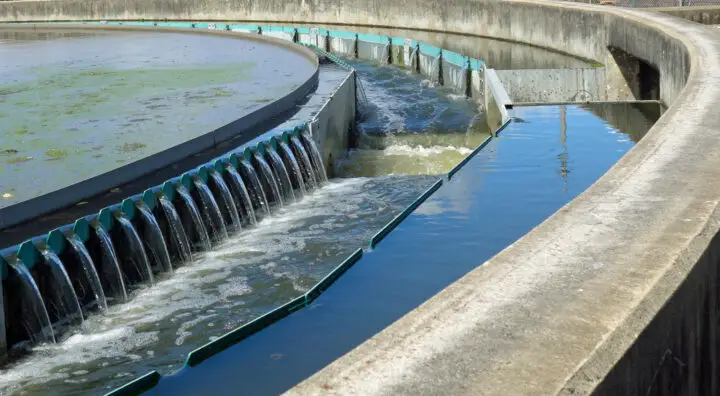
These are just a few of the key differences between treating well water and municipal water. As always, it’s important to get your water tested first or to use a reliable DIY water testing kit to get an idea of what exactly is in your water and the water hardness level.
Once you know what you’re working with, then it’s time to custom-tailor your water treatment system to suit your needs.
